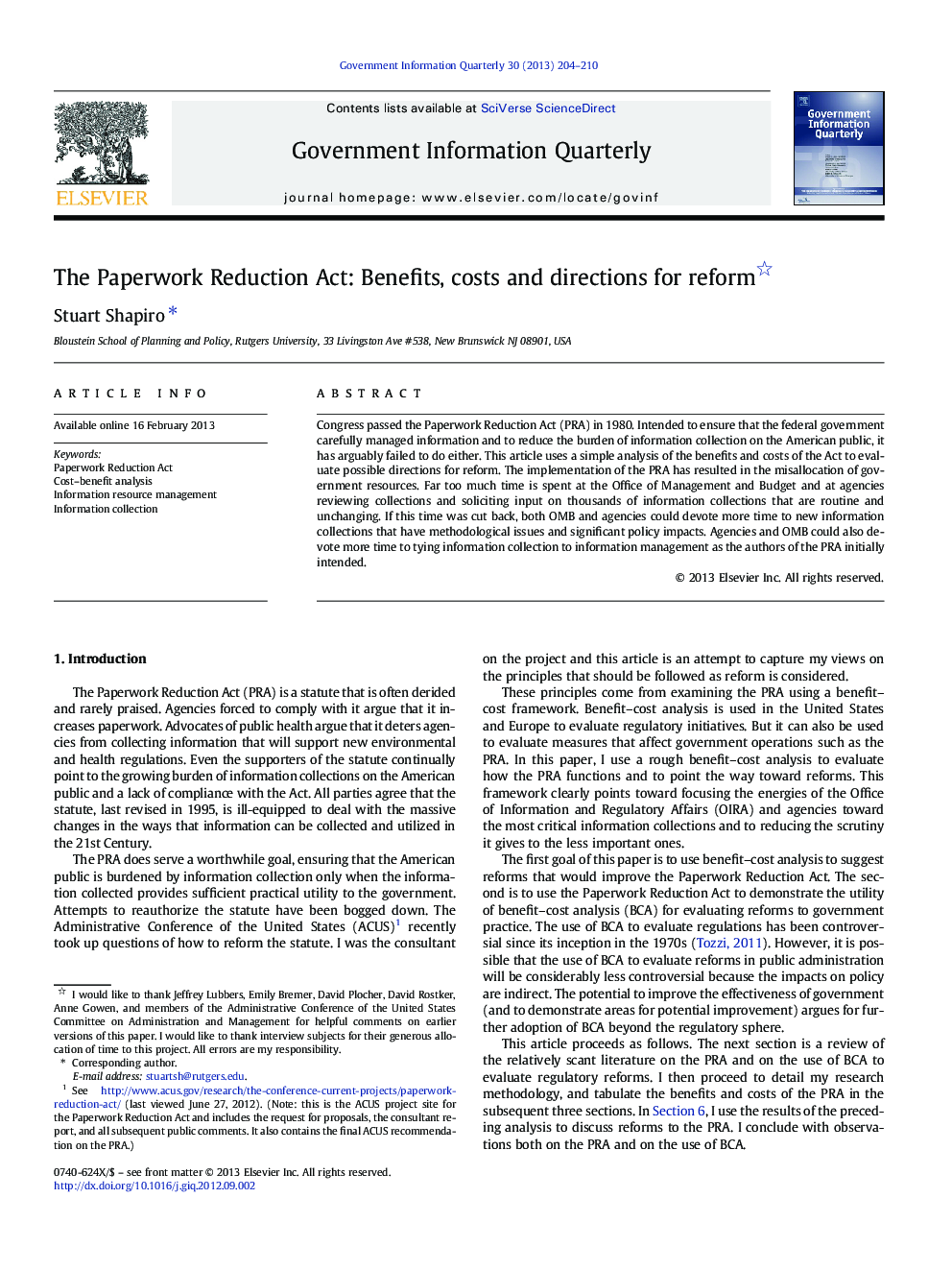| Article ID | Journal | Published Year | Pages | File Type |
|---|---|---|---|---|
| 1024482 | Government Information Quarterly | 2013 | 7 Pages |
Congress passed the Paperwork Reduction Act (PRA) in 1980. Intended to ensure that the federal government carefully managed information and to reduce the burden of information collection on the American public, it has arguably failed to do either. This article uses a simple analysis of the benefits and costs of the Act to evaluate possible directions for reform. The implementation of the PRA has resulted in the misallocation of government resources. Far too much time is spent at the Office of Management and Budget and at agencies reviewing collections and soliciting input on thousands of information collections that are routine and unchanging. If this time was cut back, both OMB and agencies could devote more time to new information collections that have methodological issues and significant policy impacts. Agencies and OMB could also devote more time to tying information collection to information management as the authors of the PRA initially intended.
► The Paperwork Reduction Act (PRA) has not resulted in a reduction in burden. ► The PRA could be much more effective if it was better targeted. ► Information resource management is a neglected function of the PRA. ► Cost–benefit analysis should be used to evaluate regulatory reforms like the PRA.
